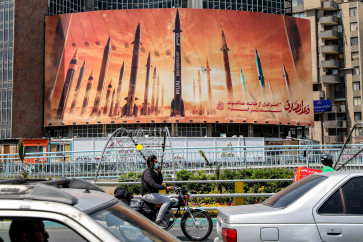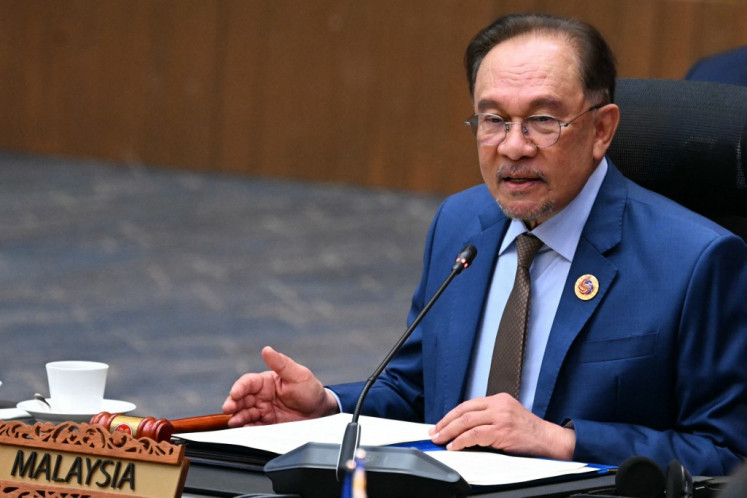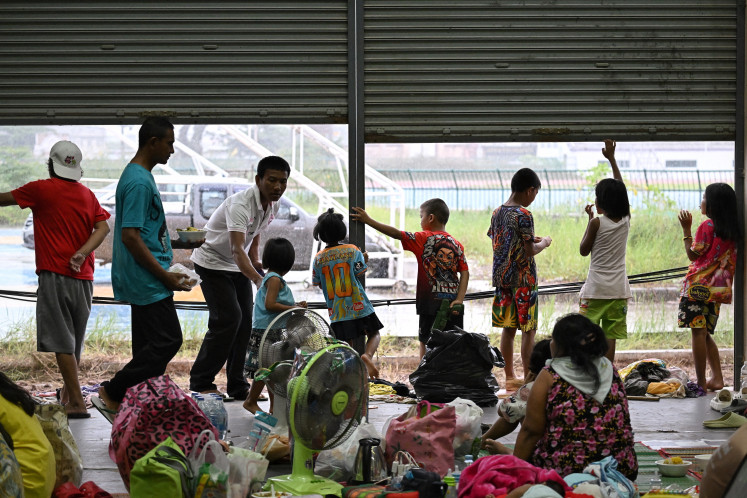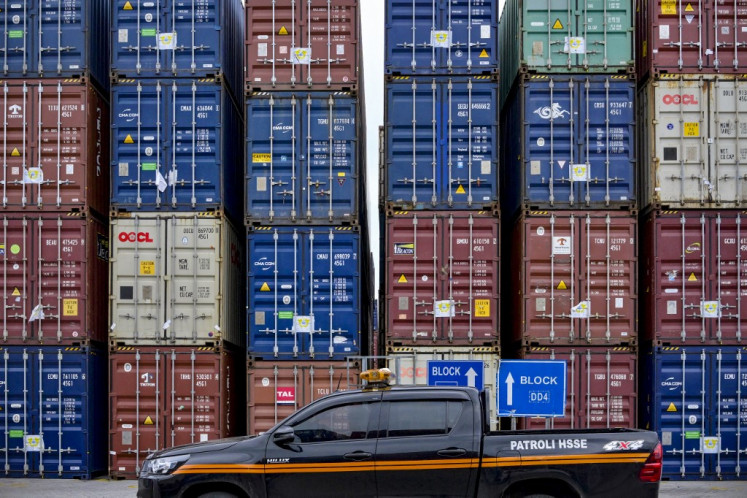Popular Reads
Top Results
Can't find what you're looking for?
View all search resultsPopular Reads
Top Results
Can't find what you're looking for?
View all search resultsLetter : A challenge to urban planners
The article “City of Java and Unplanned Urbanization” by Ratih Hardjono (The Jakarta Post, April 4) discusses various details of the rapid urbanization of Java Island
Change text size
Gift Premium Articles
to Anyone
T
he article “City of Java and Unplanned Urbanization” by Ratih Hardjono (The Jakarta Post, April 4) discusses various details of the rapid urbanization of Java Island. The term “City of Java” is interesting in itself. Although due to the geography of Java, it may not be possible but such happenings in other parts of the developing world are not only possible but are a reality.
Unplanned urban sprawling engulfs surrounding fertile land, not only reducing the available agricultural land but also leading to rural-urban migration that pushes the young population to move to cities, leaving only old people and women to take care of the farms.
This further reduces agricultural productivity. This also results in rural poverty and pushes more people into cities, which act as a “bright-light syndrome” to poor migrants.
The harsh fact is that in a developing economy, such trends cannot be stopped or reversed. Not only does it lead to over-crowding and the growth of squatter colonies in cities but poor migrants also face problems like forced eviction, violence, crime and corruption.
Many areas also suffer high female mortality, HIV/AIDS and tuberculosis. These segments of a restless poor population, frustrated and frightened by crime and disease, are also uncontrollable masses in the heart of cities, which can at any moment give rise to a large movement or revolution.
The cultural and political consequences of such transformations have long-term effects that are difficult to foresee and plan, and can be a major deterrent to financial investment in the country.
Hence, there is an urgent need to formulate development policies that have a positive impact on urban growth and can reverse the migration trend.
If such problems are left unresolved at the national and local levels, soon the rural population will be less than the urban population and the number of urban dwellers living in poverty will increase, leading to a critical stage where more slums and greater poverty will cause massive environmental degradation.
These problems require action on both the local and national levels. Great care has to be taken because wherever these problems exist, it is due to the lack of political will, as well as corruption that further leads to unresponsive financial systems and further corruption.
Therefore, there is an imperative to formulate development policies that not only impact the urbanization process, but also lead to a reduction of rural-urban migration by pursuing a set of development policies.
The migrant population comes from diverse regions, hence representing cultural diversity. Care should be taken not only to protect the cultural pluralism but also should develop sector-wide programs in areas like sanitation, health and education.
Local government bodies should be empowered and strengthened. The decentralization of authority and availability of financial resources should be made to local bodies to improve information and education, awareness of air and water pollution, management of hazardous waste, conservation of natural resources, etc. Local-government bodies can also promote micro-finance schemes and also provide the required investment.
At many places, urban sprawls have engulfed the surrounding farmland and have become interconnected with nearby villages, towns and cities, creating urban agglomerates. Such interlocked urban regions present a challenge to planners, as no clear-cut urban-rural demarcation and distinction is possible.
These challenges can be resolved with well-conceived national policies and empowered local government bodies leading development and playing a complementary role in the pursuit of socioeconomic growth in the present era of challenging rapid urbanization.
Mira Bahukhandi
Jakarta










